Discovering that you have pests in your home can be unsettling and may even induce feelings of anxiety. To resolve this pest-related damage, you’ll need to identify the source of the problem and evaluate whether or not these pests have spread to other areas of your home. Additionally, as part of your pest control strategy, you’ll need to determine if you can get rid of the pests using homemade, natural solutions, or if you’ll need to recruit an exterminator.
For those currently living in Virginia, here’s a list of common household pests capable of infesting your home and the simple solutions you can employ to eradicate them. Depending on the severity of the infestation, DIY methods can minimize the risk of contracting a life-threatening disease, much like it can reduce the risk of accumulating thousands of dollars in property damages.
For more information on local pest control experts in your area, click here
Get rid of ants using natural spices
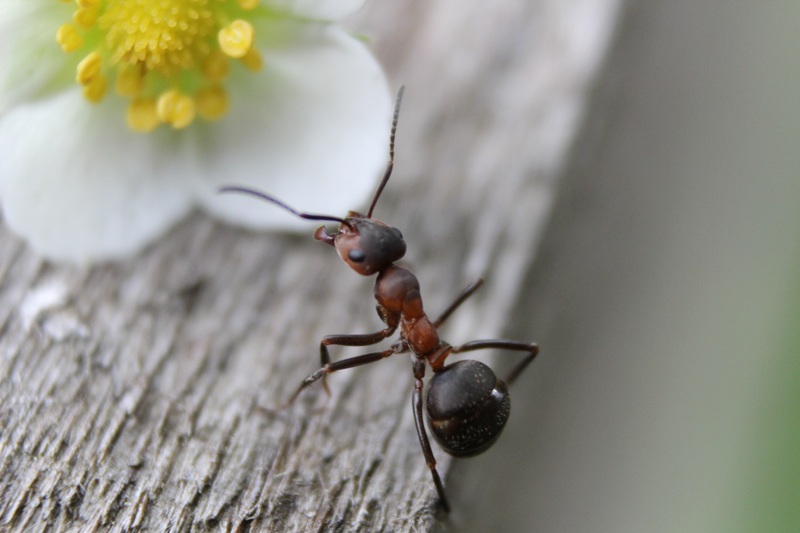
source:pxhere.com
Whenever you spot an ant in your home, your first instinct is usually to step on it. While stomping on the occasional pest is a quick fix, it won’t address the root of the problem. Unfortunately, there may be a horde of ants hiding around your home. Those individual ants you spot on your countertops, floorboards, or pantries are called scout ants. These scout ants are assigned with the task of looking or food to take back to the colony.
You can only get rid of these tiny creatures once you identify their entry points. As soon as you pinpoint their points of entry, seal them off with petroleum jelly or caulk. Garlic, chili pepper, coffee grinds, paprika, dried peppermint, or cloves are natural repellants that you can use. For maximum effect, sprinkle any of these spices along their entry points to prevent ants from accessing your home.
Rodents can be dangerous
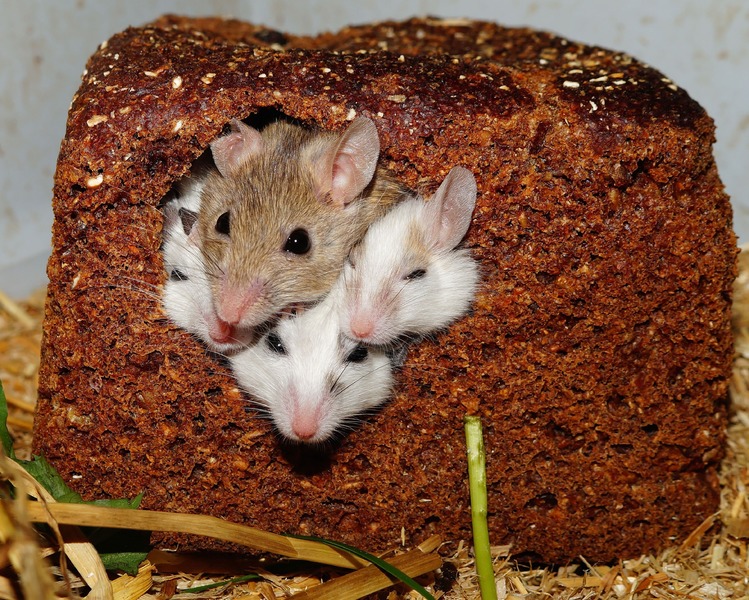
source:pxhere.com
The dirt and debris left behind when you go on a business or family trip may attract rodents. The most common household rodents are mice and rats. Rats scout the premises for meat and grains, while mice search for cereal products. It’s worth noting that rodents can spread infections like Hantavirus, typhus, and Lyme disease. Their feces can also contaminate food and your home’s surfaces.
The best way to ward off rodents away is by controlling the environment prone to pest invasion. It would help to seal up entryways between the indoors and outdoors, clear out any debris that could function as a hiding place, and store food in tightly-sealed containers.
If you notice that rodents are attracted to a specific area of your house, spray it with a solution of garlic, horseradish, and cayenne paper to avert them. You can also purchase a cat to help you fight off the rats and mice plaguing your home.
Termites
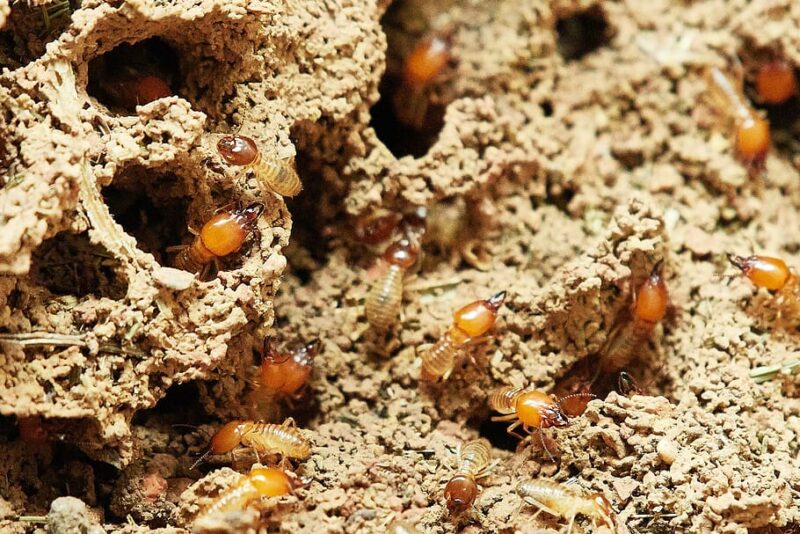
source:pxfuel.com
Termites are known to inhabit decomposing trees, piles of mulch, and wooden buildings. They primarily feed on dead wood, roots, stump, and mulch. While termites don’t carry any diseases, their appetites are insatiable and can destroy the wooden structures supporting your home.
You can also ward off termites by relocating woodpiles far away, preferably 30 feet, from your house’s foundation, as explained by Pest Control Reviews. Additionally, avoid building wooden structures near a crawl space. Non-toxic chemicals like orange oil, neem tree oil, and borax can also help combat the devastating effects of these household pests. If you already have termites and need to get rid of them, you might need to use serious methods of their control such as termite tenting — you can read more about it in this article by Rethority.
Eradicate cockroaches naturally
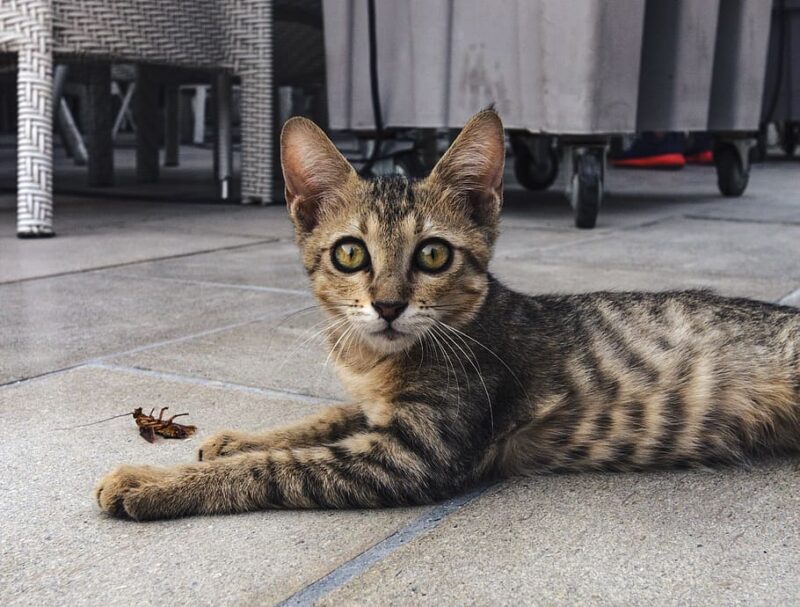
source:pxfuel.com
Cockroaches thrive in warm and humid spaces. In most cases, cockroaches will lurk in your kitchen, bathroom, basement, and your drains. If you’ve been diagnosed with asthma, you’ll are more susceptible to cockroach-related allergic reactions.
Unfortunately, these creatures are stubborn and difficult to treat, so eliminating cockroaches can pose a challenge for any homeowner. The most effective way to ensure cockroaches aren’t infiltrating your home is to take a proactive approach to pest control. Keep surfaces clean by wiping them with white vinegar, store food in sealed containers, and drain sinks.
If you’re already experiencing a cockroach infestation, boric acid can help treat these areas. To eliminate cockroaches, fill any existing cracks with boric acid. Whole bay leaves are also useful in deterring these pests away from your living spaces.
Mosquitoes
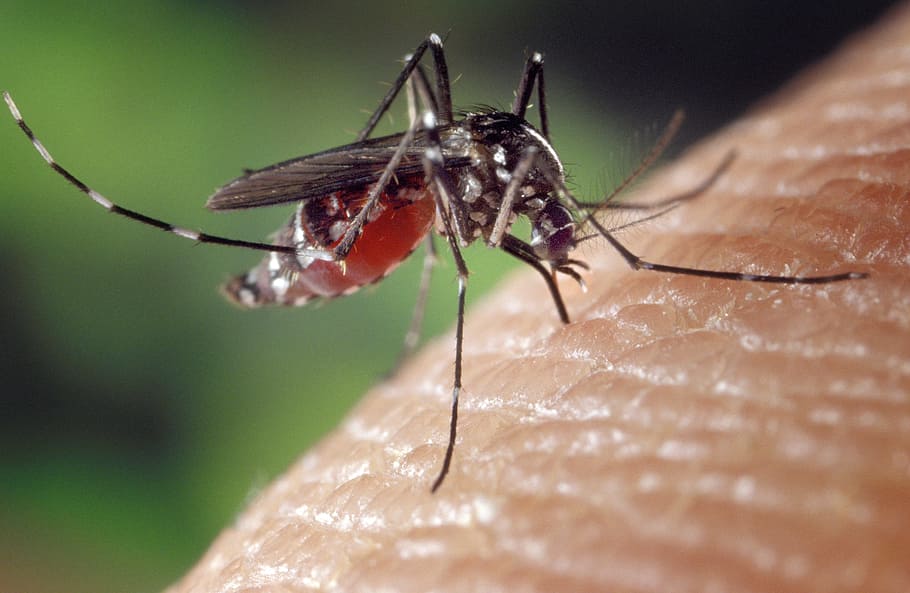
source:pxfuel.com
Mosquitoes are often found near swamps, lakes, tidal areas, and ponds. A female mosquito will bite you and draw your blood to extract the nutrients essential for laying eggs. These household pests are infamous for transmitting diseases like yellow fever, malaria, and encephalitis, all of which can be potentially life-threatening for your loved ones.
To prevent mosquitoes from invading your home, you should keep windows closed whenever possible, drain stagnant water, and mow your lawn regularly. If you like to spend time outdoors during the summer, apply natural mosquito repellants such as lemon eucalyptus, or essential oils like peppermint, lavender, and citronella. You can also purchase standard insect repellents from your local grocery stores.
Repelling silverfish
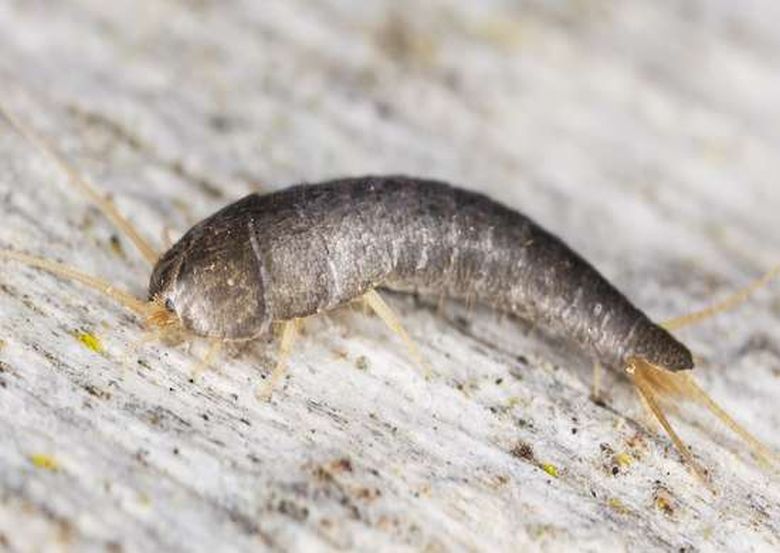
source:pxhere.com
Contrary to their name, these pests aren’t aquatic animals. Silverfish are small, wingless that love munching on polysaccharides found in carpet fibers, book glue, fabrics, and furniture. Silverfish thrive in humid environments and can affect your health.
To eradicate silverfish wandering around your home, spread dried bay leaves and cedar oil around your home. These household pests are repelled by the natural smell emanating from these two substances.
Centipedes
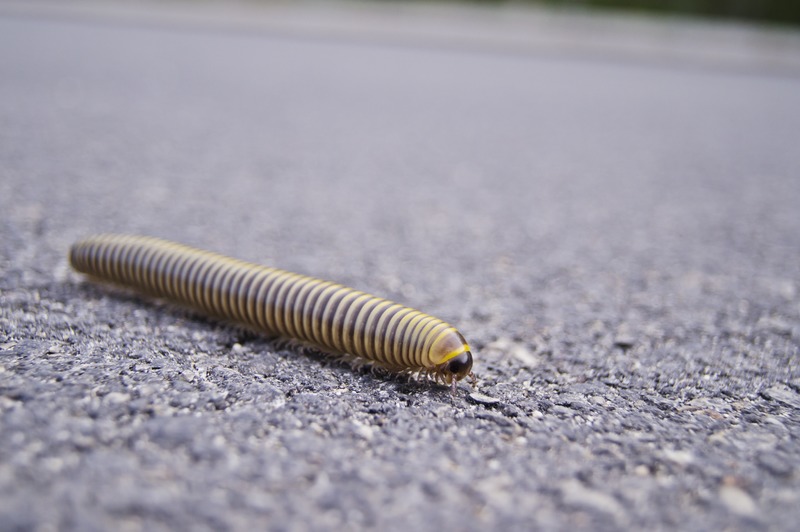
source:pxhere.com
Unlike cockroaches, centipedes are easy to treat. These pests primarily feed on spiders and other insects. Therefore, the easiest way to eliminate them is to deprive them of their food sources and ensure that your house is pest-free. Additionally, reducing clutter can help you ward off centipedes, as these pests thrive in areas stocked with plenty of hiding spaces.
Eradicating millipedes
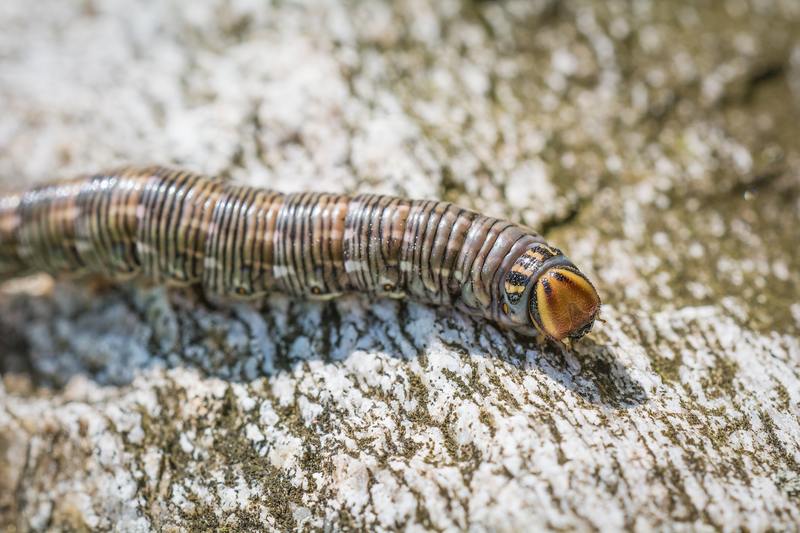
source:pxhere.com
While millipedes aren’t insects, but they can hurt you if threatened. A millipede is likely to leak hydrogen cyanide when someone is firmly holding it. While this secreted substance won’t poison you, it’s best to wash your hands thoroughly and avoid touching food immediately after contact.
To exterminate these creatures from your home, you should dry out the areas these millipedes inhabit, as this particular household pest thrives in moist environments. You can also eliminate food sources such as firewood, leaves, sticks, and decomposing plant material to stave off millipedes.
Getting rid of earwigs
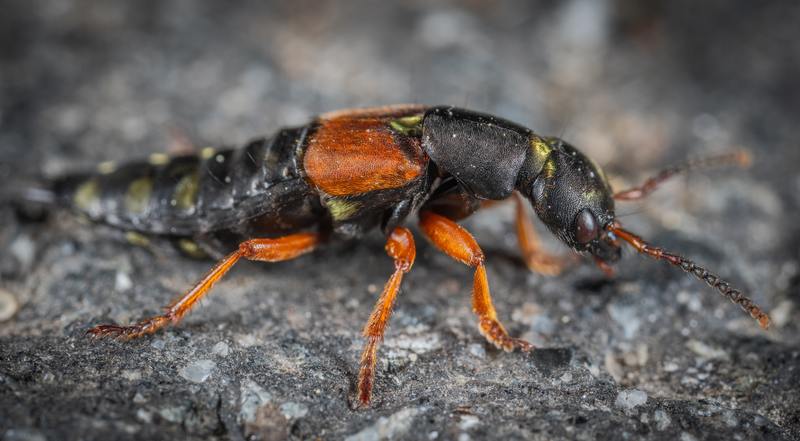
source:pxhere.com
Earwigs, also known as pincher bugs, earwigs are mostly found in warm and humid climates and flock to decaying plant material. These pests are also nocturnal. Therefore, you likely won’t be able to spot these pests in the garden during the day—making it difficult to track the source of these earwigs.
Simple home remedies like petroleum jelly can help you prevent earwig infestations. Spreading petroleum jelly on and around the stems of your plants will discourage earwigs from crawling on them. Sprinkling borax on your woodpile is yet another affordable and natural pest control solution you can implement in your home.
Paper wasps
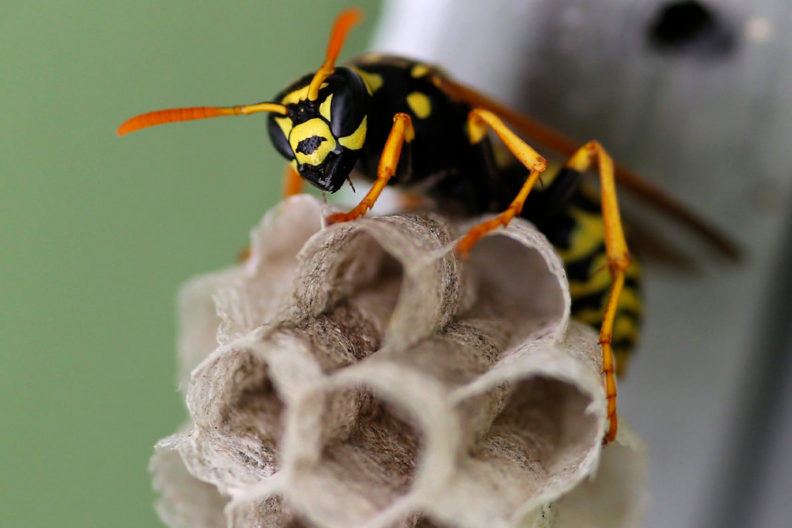
source:news.wsu.edu
These wasps build their nests from loose paper products and other litter. If paper wasps build a nest around your home, you’ll be able to spot it with the naked eye. According to the experts, paper wasp nests can exist on porch ceilings, window corners, or beneath porches.
Before you remove a wasp nest, you’ll need to weigh the risks. If you’re allergic to bee stings, you may experience severe symptoms, including a blocked airway, swelling, and loss of consciousness. Before exterminating the bees nest, you should put on protective gear and use a wasp spray to avoid direct contact.
Eliminating fleas and ticks

source:pxhere.com
Fleas can bury themselves in your hair or in an animal’s fur. These pests are dangerous, annoying, and are capable of transmitting diseases like tapeworms and typhus. Unfortunately, it can be challenging to eliminate fleas once they gain entry. Fortunately, you can prevent flea infestation through Bone and Yarn’s tick a
However, vacuuming your home and washing your pet regularly with hot water will help reduce your risk of exposure to these life-threatening diseases. Along with pesticides, natural herbs like lemon, wormwood, citronella, and rosemary can also nip household pests in the bud.
Ticks, on the other hand, are known to suck and ingest human and animal blood. This household pest also acts as a vector for various diseases, including Lyme disease and encephalitis. You can prevent yard ticks by trimming your grass regularly and performing a quick scan of your body after participating in outdoor activities such as hiking.
Conclusion
While pests can be annoying, these tips will help you eliminate them with ease. However, if you’re experiencing a severe infestation within your home, you may need to seek professional assistance to prevent them for good.

